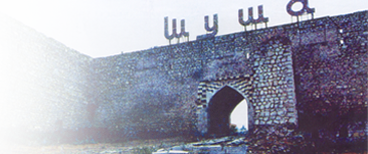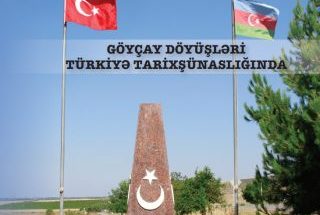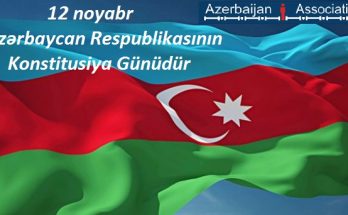 Day.Az interview with Consul General of Azerbaijan in Los Angeles Elin Suleymanov.
Day.Az interview with Consul General of Azerbaijan in Los Angeles Elin Suleymanov.
How do you assess events held in a number of countries worldwide to mark 18th anniversary of the Khojaly Genocide? To what extent these events were helpful to inform people around the world about true reasons and consequences of the Armenia-Azerbaijan Nagorno-Karabakh conflict?
The world is already aware of Khojaly tragedy due to events organized in many countries. This is result of joint efforts by public authorities, NGOs, Diaspora organizations and individuals united by a desire to voice truth about the terrible days in February 1992. A well-known initiative by Leyla Aliyeva plays special role in this.
First, information about the Khojaly tragedy once again shows how aggressive nationalism is dangerous for our region. In general, it is difficult to understand dynamics of the Armenian-Azerbaijani Nagorno-Karabakh conflict and achieve lasting peace without realizing the great pain inflicted by Khojaly massacre, the worst page of the war. Information about the tragedy in Khojaly is truth confirmed by numerous independent sources including those in Armenia. Accordingly, the truth can be very persuasive.
What is the reaction of the Armenian diaspora in the U.S. on activities held by the Azerbaijani side to inform ordinary Americans of atrocities Armenians committed in the course of the Karabakh war?
Unfortunately, in recent times Armenian side has attempted to falsify even recent history. Such attempts are made even in regard to the Khojaly tragedy which I believe is insulting for self-respecting Armenians themselves, too. Presence and impunity of killers of civilians in Khojaly in the Armenia society do not honor to it and bodes nothing well.
I hope today’s unhealthy reaction by some Armenian radicals on information about the tragedy in Khojaly will someday be replaced by an understanding how much damage those who committed war crimes in Khojaly and other occupied territories of Azerbaijan inflicted to the region and Armenia itself.
How the Armenian diaspora is going to mark April 24, anniversary of the 1915 events that they describe as “genocide”?
The preparations are in full swing as usual and the Armenian diaspora members are being actively mobilized for this purpose.
Is U.S. President Barack Obama likely to describe these events as “genocide” this year?
There is always such a likelihood. We should not forget that 2010 is a year of election for members of the House of Representatives and many Senators. This year, as it was before, the U.S. president will seek to find a balance between the strategic importance of relations with Turkey and domestic political pressure from the Armenian Diaspora and lobby. It is this political balance, but not the history of events in 1915, that will once again define the terminology that the White House uses.
What are your comments on Armenian media reports that the U.S. says not Armenia, but Turkey is responsible for failure of a process to normalize the Turkish-Armenian relations?
The difficulties that impedes the Turkey-Armenia normalization are evident. These problems were initially predictable, because it is clear that unresolved Armenian-Azerbaijani Nagorno-Karabakh conflict is the main obstacle to development in the region. In this context, it is simply unrealistic to expect real advances without progress in settlement of the Armenian-Azerbaijani conflict. Both Washington and other capitals realize the link between these two processes more and more.
The best way to accelerate the process of Turkey-Armenia normalization is to make real efforts to reach a speedy settlement to the Armenian-Azerbaijani Nagorno-Karabakh conflict.
today.az



